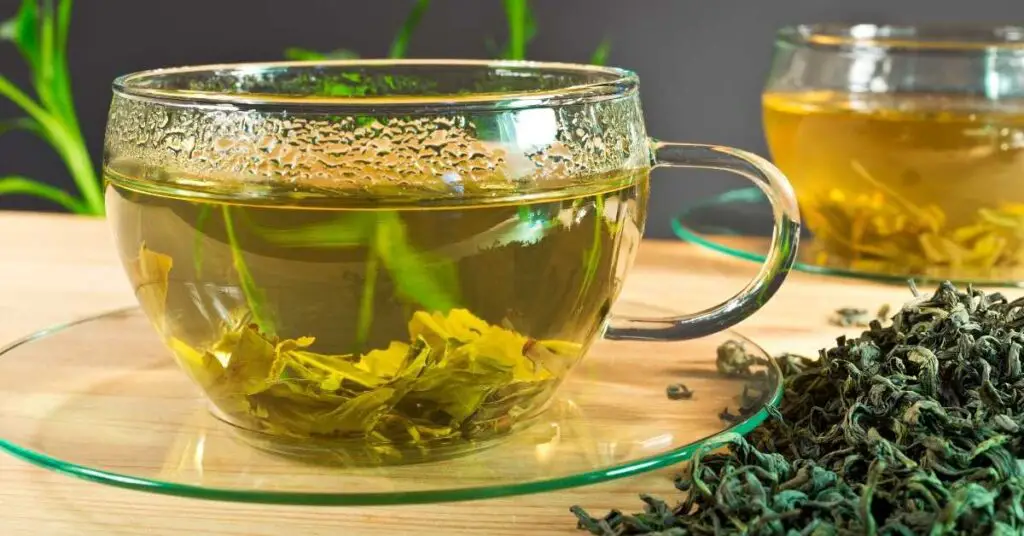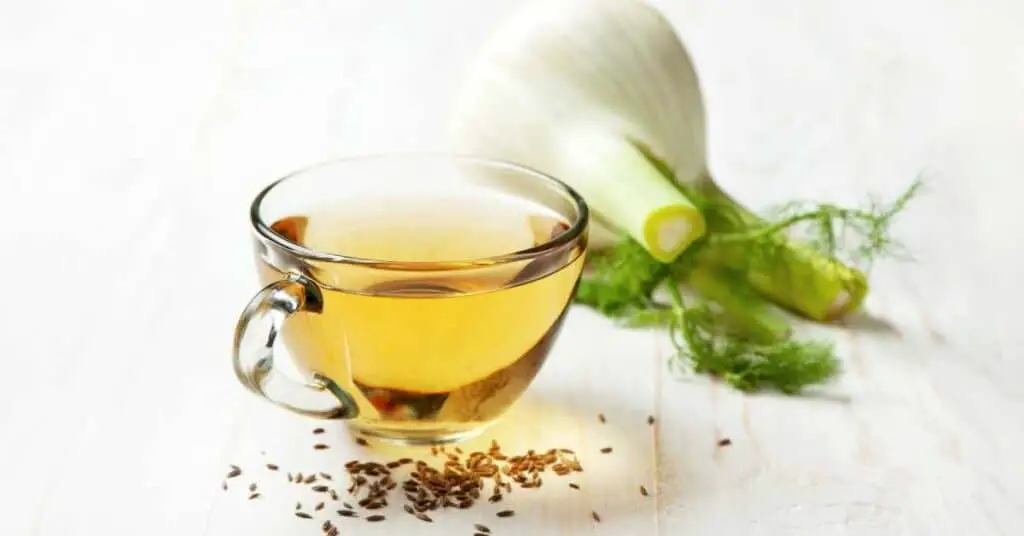For centuries, green tea has been prized for its many health benefits. In recent years, scientific research has begun to confirm what traditional medicine has long known—that green tea can help to improve overall health and well-being. Green tea is rich in antioxidants, which help to combat cell damage and protect against disease. Additionally, green tea has been shown to boost metabolism and promote weight loss. What’s more, green tea is a natural source of energy and can help to improve mental alertness. Whether you are looking to improve your health or simply enjoy a delicious beverage, green tea is a great choice.
While green tea is generally considered safe, there is a potential for side effects when consumed in large amounts. According to the National Institutes of Health, drinking more than 8 cups of green tea daily is possibly unsafe.
This is due to the fact that green tea contains caffeine, and too much caffeine can cause side effects such as insomnia, anxiety, irritability, and gastrointestinal issues. Additionally, green tea contains tannins, which can lead to stomach upset and constipation when consumed in large quantities. As with any food or beverage, it is important to moderate consumption of green tea to avoid any adverse effects. Drinking 1-2 cups per day is generally considered safe for most people.
How much green tea is safe to drink per day?
Green tea is packed with antioxidants and has many health benefits, including improved brain function and a lower risk of cancer. But how much green tea should you drink per day to reap these benefits? Although there is no definitive answer, most experts recommend drinking 2 to 3 cups of green tea per day. This amount provides a good balance of antioxidants and caffeine, which can vary widely in green tea depending on the type and brewing method. Keep in mind that it’s also important to limit your intake of caffeine from other sources, such as coffee, sodas, and energy drinks. Too much caffeine can cause side effects such as anxiety and insomnia. So, if you’re looking to add green tea to your diet, start by drinking 2 to 3 cups per day and adjust as needed. You’ll be on your way to enjoying all the health benefits that green tea has to offer!
How to know if you’re drinking too much green tea?
While green tea is generally safe to consume in moderation, it’s possible to drink too much. If you find that you’re experiencing any of the following side effects after drinking green tea, it’s best to cut back on your intake:
– Insomnia
– Anxiety
– Irritability
– Gastrointestinal issues
– Stomach upset
– Constipation
If you’re unsure of how much green tea is safe for you to drink, start with 1-2 cups per day and adjust as needed. By doing so, you’ll be able to enjoy all the health benefits that green tea has to offer without drinking too much.
The health benefits of green tea
Green tea is rich in antioxidants, which help to combat cell damage and protect against disease. Additionally, green tea has been shown to boost metabolism and promote weight loss. What’s more, green tea is a natural source of energy and can help to improve mental alertness. Whether you are looking to improve your health or simply enjoy a delicious beverage, green tea is a great choice.
How to make a cup of green tea?
Brewing the perfect cup of green tea is simple! Just follow these steps and you’ll be enjoying a delicious cup of green tea in no time.
1. Start with fresh, cold water. Bring your water to a boil and then let it cool for about 2 minutes. This will help to ensure that your water is at the correct temperature for brewing green tea.
2. Measure out the correct amount of green tea. For most types of green tea, you’ll want to use 1 teaspoon of tea per 8 ounces of water.
3. Pour the hot water over the tea and let it steep for 3-5 minutes. Be sure to not let it steep for too long, as this can make the tea bitter.
4. Once the tea has finished steeping, add your preferred amount of milk or sweetener and enjoy!
The best time of day to drink green tea?
As any tea lover knows, there is nothing quite like a steaming cup of tea. Whether you prefer black tea, green tea, or herbal tea, there is a type of tea to suit every taste. One of the most popular types of tea is green tea.Green tea is hailed for its numerous health benefits, which include everything from improved brain function to a lower risk of cancer. But what is the best time of day to drink green tea?
Some experts believe that the best time to drink green tea is first thing in the morning. This is because the caffeine in green tea can provide a gentle energy boost that can help to improve mental alertness and focus. Additionally, drinking green tea in the morning can help to jumpstart your metabolism and promote weight loss. If you are not a fan of caffeine or are sensitive to its effects, you can also enjoy decaffeinated green tea. Ultimately, there is no wrong time of day to drink green tea. So choose the time that works best for you and enjoy!
Side effects of drinking too much green tea
While green tea has many benefits, there can be side effects from drinking too much of it.
One such side effect is anaemia. This is because green tea contains tannins, which can bind to iron and prevent its absorption. As a result, those who drink large amounts of green tea may be at risk for iron deficiency anaemia.
Another potential side effect of drinking too much green tea is caffeine sensitivity. While green tea does contain less caffeine than coffee, it can still cause jitters, anxiety, and insomnia in those who are sensitive to it.
Additionally, green tea contains catechins, which can cause liver damage in high levels.
Finally, people with heart conditions should be cautious about drinking large amounts of green tea, as the caffeine and catechins it contains can increase heart rate and blood pressure.
While green tea has many benefits, it is important to drink it in moderation to avoid any potential side effects.
How to reduce your intake of green tea if needed?
If you find that you are drinking too much green tea or are experiencing any adverse effects, there are a few things you can do to reduce your intake.
First, try drinking green tea with meals instead of on an empty stomach. This will help to reduce the absorption of tannins and catechins, which can cause side effects such as anaemia and liver damage.
Second, try limiting yourself to one cup of green tea per day. This will help you to get the benefits of green tea without consuming too much caffeine or catechins.
Finally, try switching to decaffeinated green tea. This will still provide some of the benefits of green tea without the caffeine.
If you find that you are still experiencing side effects after reducing your intake of green tea, it is best to consult with a doctor to rule out any other underlying causes.
Alternatives to green tea if you’re looking for other healthy drinks
If you’re looking for other healthy drinks besides green tea, there are plenty of options to choose from. Some other healthy drink options include:
Water: Drinking plenty of water is essential for overall health and can help to keep you hydrated and flush out toxins.
Herbal tea: Herbal teas are a great way to get the benefits of green tea without the caffeine. Some good options include chamomile tea, ginger tea, and lavender tea.
Fruit juice: Fruit juices are a great source of vitamins and minerals. Just be sure to choose 100% fruit juice with no added sugar.
Smoothies: Smoothies are a great way to get your daily dose of fruits and vegetables. You can make them at home with a blender or buy them pre-made at the grocery store.
Kombucha: Kombucha is a fermented tea that contains probiotics, which can help to improve gut health.
Conclusion
Green tea is generally safe to drink in moderation. However, there can be some side effects from drinking too much green tea, such as anaemia, liver damage, and caffeine sensitivity. If you find that you are drinking too much green tea or are experiencing any adverse effects, try reducing your intake or switching to decaffeinated green tea. If you are still experiencing side effects, it is best to consult with a doctor to rule out any other underlying causes.





